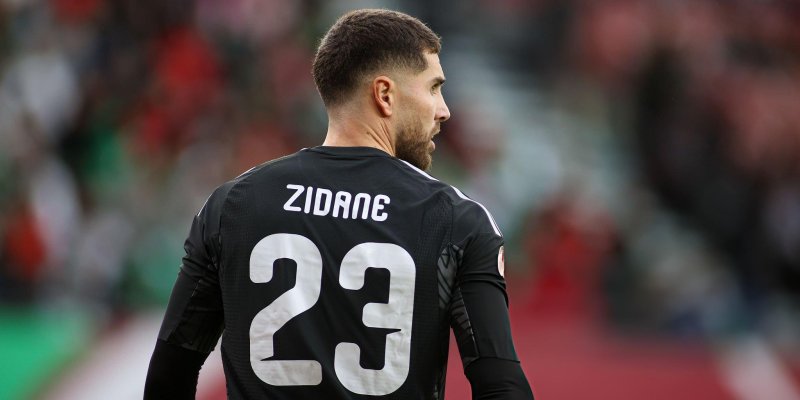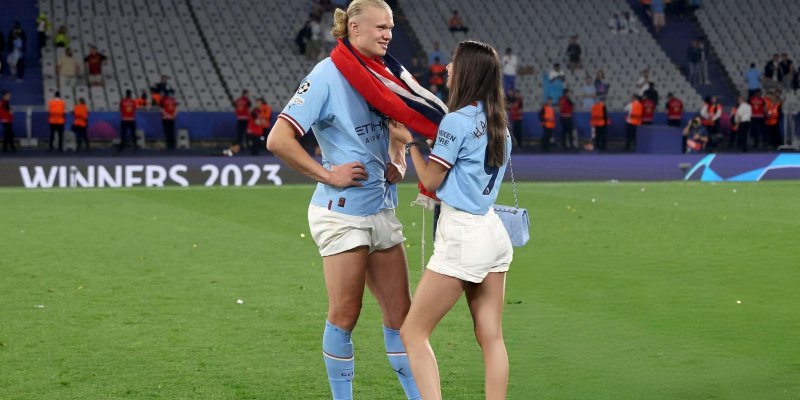
The Champions League returned just the way we love it: drama to the last beats, roaring stands, sly tactical tweaks from managers, and heroes appearing where space shrinks to the size of the penalty area. The second matchday delivered a trove of plots — from Virgil van Dijk’s late header to Harry Kane’s textbook brace, from a powerful PSG to a selfless Pafos standing tall a man down. Let’s break down the essentials — in order and without sparing anyone’s nerves.
Liverpool and the Art of the Final Siege

Arne Slot’s team seems to live for the last quarter-hour. Against Atlético, the English side launched with a battering start: an early set piece, a crisp one-two combination, and the calm class of finishers — 2–0 on the board by the 10th minute. Diego Simeone’s Madrid machine looked stuck in neutral, but the Colchoneros, true to habit, switched into grinding press mode and gradually evened the flow.
The goal in first-half stoppage time became an oxygen cushion for the hosts: a burst from the second line, a toe-poke into the far corner — and the intrigue sprang back to life. After the break Atlético found rhythm in transitions and earned a deserved second on a rebound: a volley tweaked off a defender — 2–2, and Anfield remembered how to hold its breath.
But this Liverpool doesn’t curl up under pressure — it pushes through it. At 90+2, when the opponent’s box feels like home, Van Dijk won the aerial duel and steered the ball into the net off the turf. A textbook clip: the right cross height, a split-second head start, body positioning, and a header no reflex could reach. Simeone, in turn, spilled over emotionally — a red card stamped the night’s nerves.
This win is more than three points. It’s a message to the group: Liverpool can live not only off the opening surge but on discipline over distance. Yes, there’s a dependence on late goals, but that isn’t random — it’s integral to Slot’s new game code: a wide attacking line, density on second balls, control of the second wave, and a fearless belief in a 90+ set piece.
What’s next? Galatasaray in Istanbul — a survival test in an atmosphere where sound becomes the sixth outfield player. For Atlético, a home date with Eintracht — a chance to restore order and attacking tone lost in sluggish starts.
Kane and Bayern: English Precision, German Pragmatism
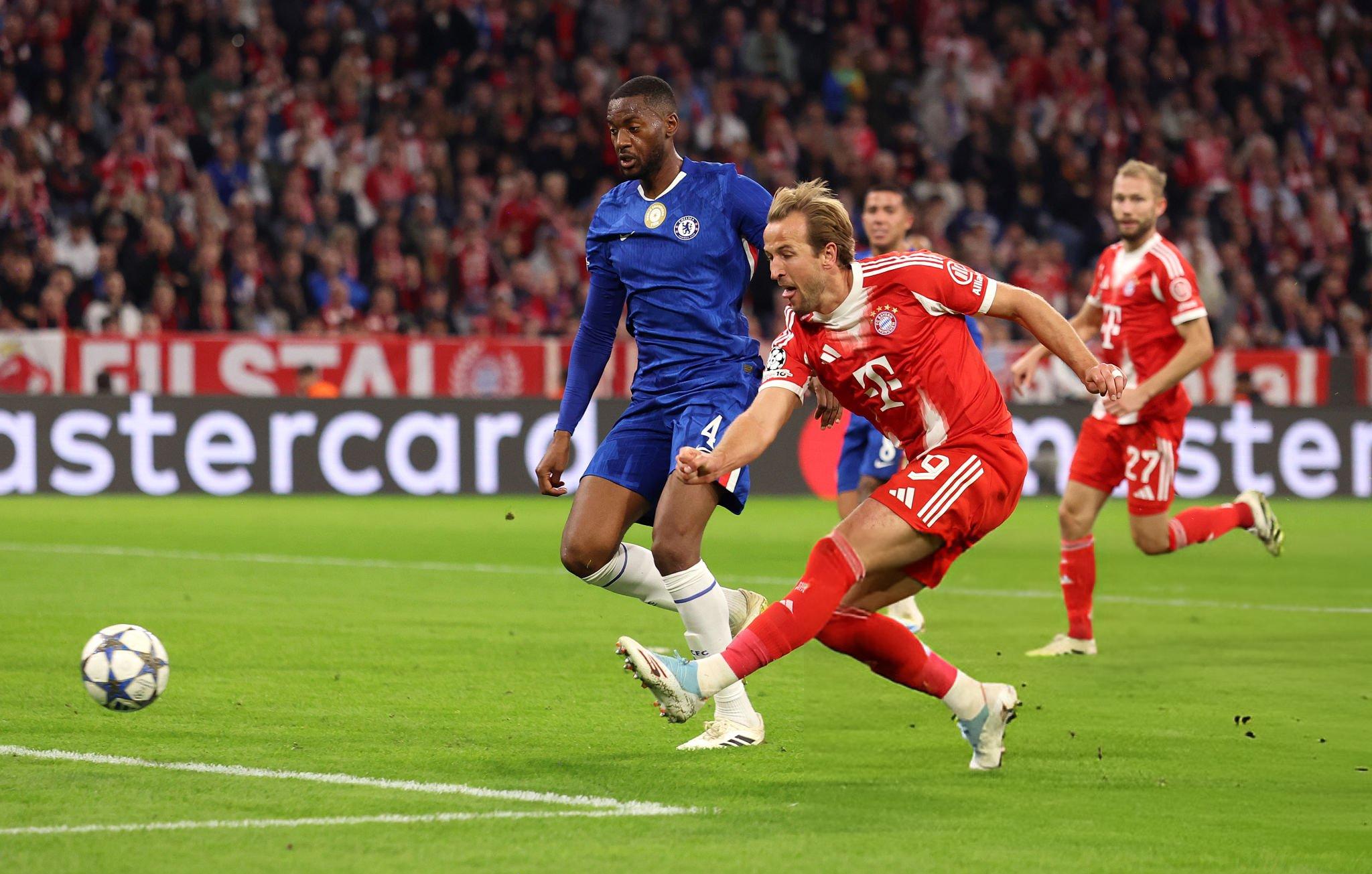
Bayern handled Chelsea the way teams with automated movement patterns do — 3–1 and the sense that Munich turned the tempo knob exactly as needed. An early own goal from the Londoners certified the Rekordmeister’s edge, but the critical moment was the penalty on Harry Kane. The English centre-forward played by the book: body between ball and opponent, one step ahead — a foul with no debate. He converted himself, calmly, without indulging the inner critic.
Chelsea’s reply was gorgeous — a signature strike under the bar — but the firepower ended there. After the break Kane made it a brace: a high regain, assessment of the angle, and a cool finish past the keeper. Right now he blends the best of two worlds — English directness and German pragmatism. He doesn’t make extra moves; he makes defenders extra.
A key detail: Bayern appear to have found the right balance between possession and verticality. They don’t torture the ball for the sake of numbers, nor get stuck in a wing machine — the centre and half-spaces receive in tempo, and up front Kane is the terminal to “deliver” any attack. Chelsea, by contrast, lack stability: between bright spells come pauses where positions slip and the opponent dictates speed.
The schedule throws Bayern an unpredictable trip — exactly the kind of exam systems, not names, pass. Chelsea must switch modes quickly: the UCL doesn’t write sweet prose, it demands functional restructuring.
The Paris Steamroller: When PSG Switches to Champion Mode
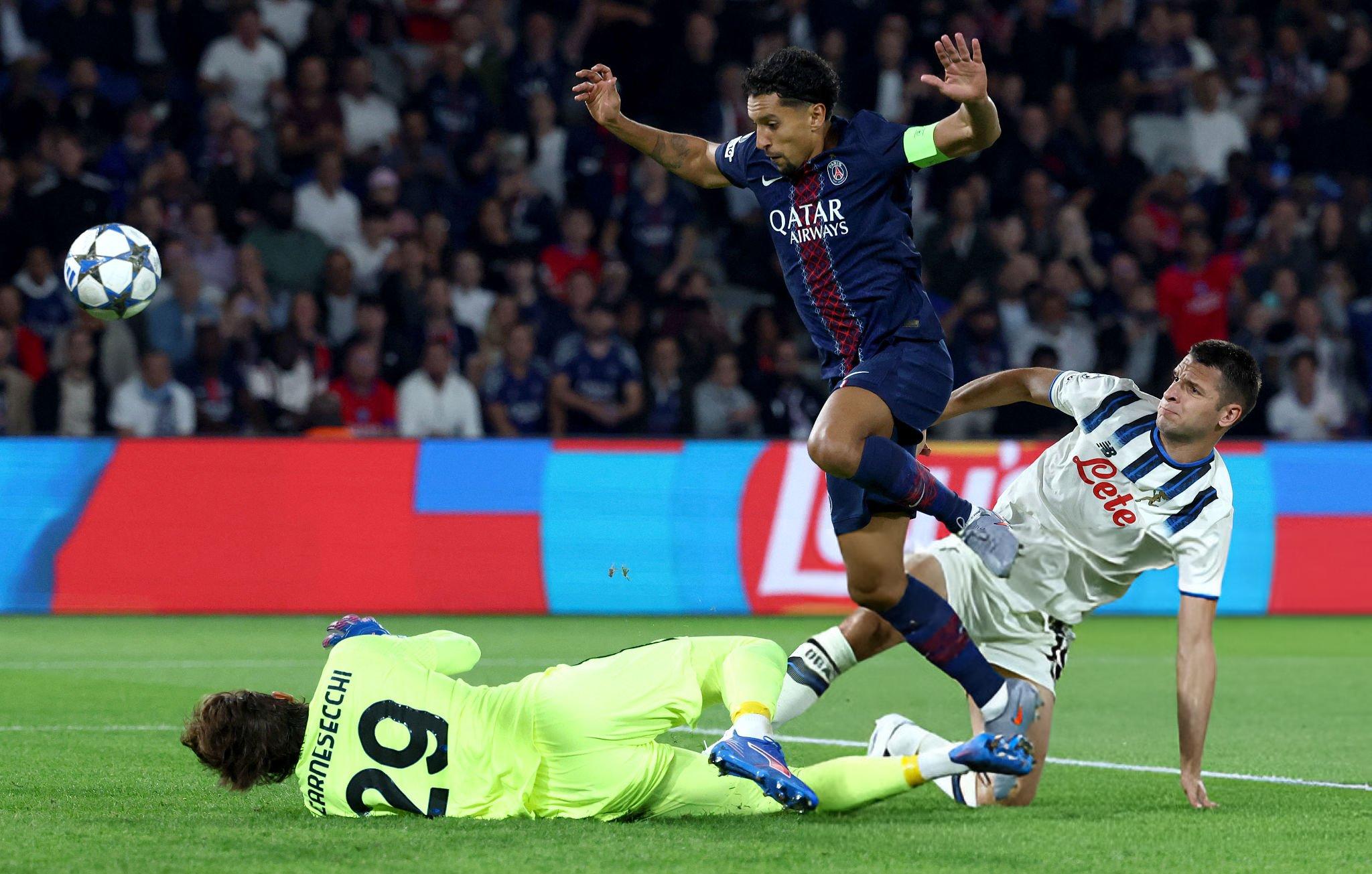
The reigning winners opened their campaign with a demonstrative 4–0. The first minutes set the tone: aggressive positional pressing, swift ball recovery, and piercing passes between the centre-backs and holding midfielders. The opener was a distillation of coaching ideas: pressing trigger, interception, entry into the box, tidy finish.
Paris suffocated Atalanta: the visitors couldn’t play their first pass, their spine lines broke, and attempts to accelerate down the flank were clamped by cover. A goal chalked off for offside was only a warning — then came width and depth: long positional attacks with switches, full-backs knifing into the heart of the area, and shots that switch off even monumental keepers. The key was end product. PSG didn’t just create; they completed.
An extra brushstroke — goalkeeping. A clean sheet to start the group stage is gold: discipline not only in attack but at your own goal, the “second floor” cleared, and opponent set pieces neutralized. Luis Enrique, watching from the stands due to injury, surely noted the maturity of his ideas: the team toggled between gas and brake without stalling, and the second goal seemed to say, “We’re here for the long haul.”
Next up for PSG is a trip to Barcelona — the litmus test that shows by November who’s a machine and who’s a box of parts. Atalanta must regain press elasticity and decision speed — the Champions League doesn’t forgive extra touches.
Pafos with Ten: A Masterclass in Resilience
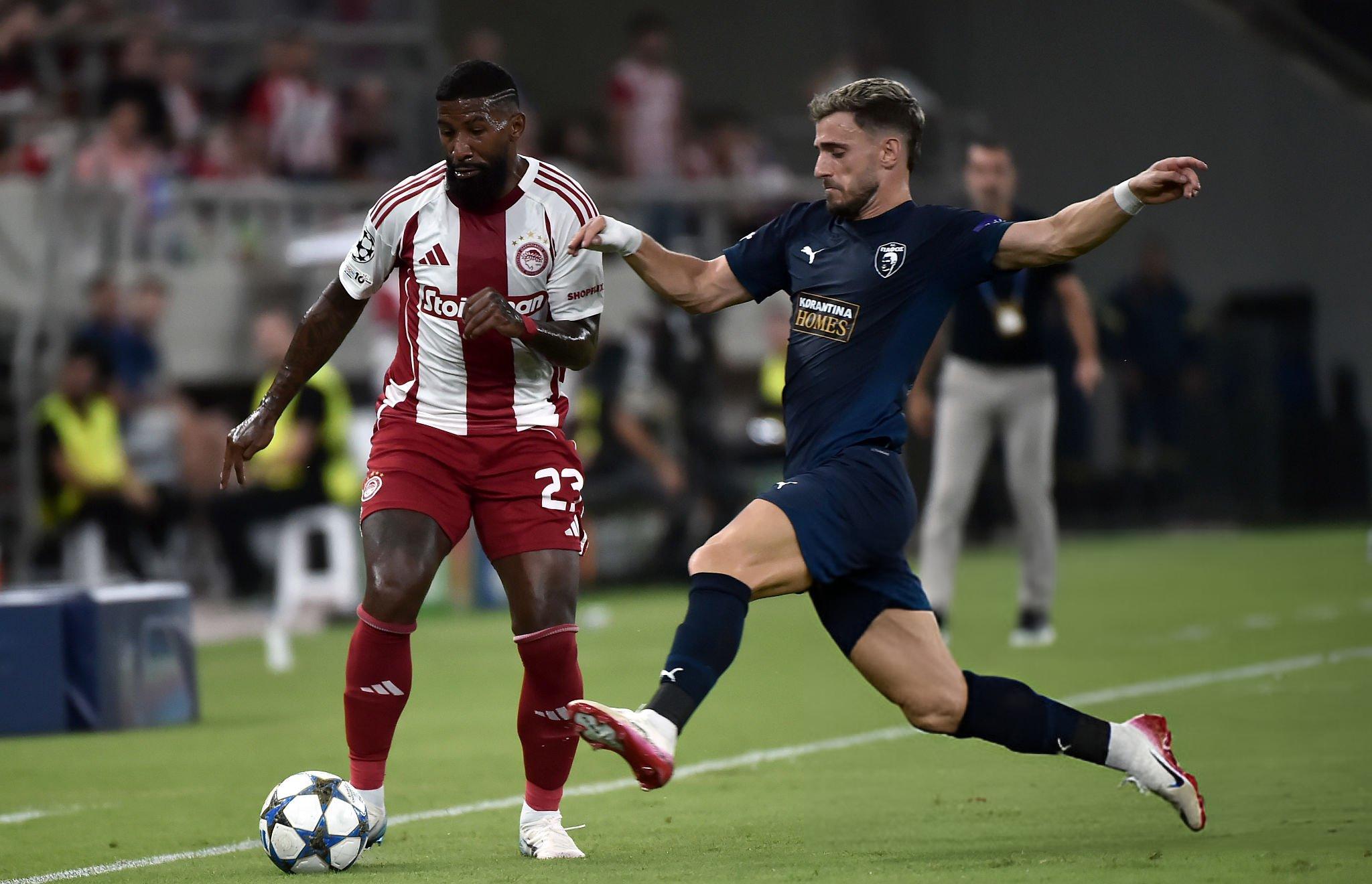
A 0–0 you could frame. Olympiacos hogged the ball, squeezed, shuffled the flanks, and slung cross after cross in search of micro-cracks. But the Cypriots went down to ten in the first half and reorganized so smartly that the hosts aimed more at blocks than at the goal.
The visiting coach rewired the drawing in a flash: the initial hybrid back four with active full-backs tucked into a tighter back five, the pivots dropped, and the wide forwards didn’t shy from breaking rhythm. Every exit from defence to attack was like a swimmer’s breath — short, but vital. Despite the strain, Pafos didn’t fall into anarchy: distances between lines held, corridors closed, the box swept clean.
Special thanks to the goalkeeper: he claimed everything on target with assurance and ruled the airspace wisely. VAR frayed nerves midway through the second half, but the referee stuck to yellow, and the visitors squeezed out the draw. As a start, that’s not just a point; it’s a cornerstone of belief for a main-stage debutant.
Olympiacos now travel to Arsenal, where possession taxes you with open zones. Pafos face a durability exam against Bayern; paradoxically, these matches have their own logic: compactness plus discipline often hold a scoreline longer than big names.
Inter and Déjà-vu from Set Pieces
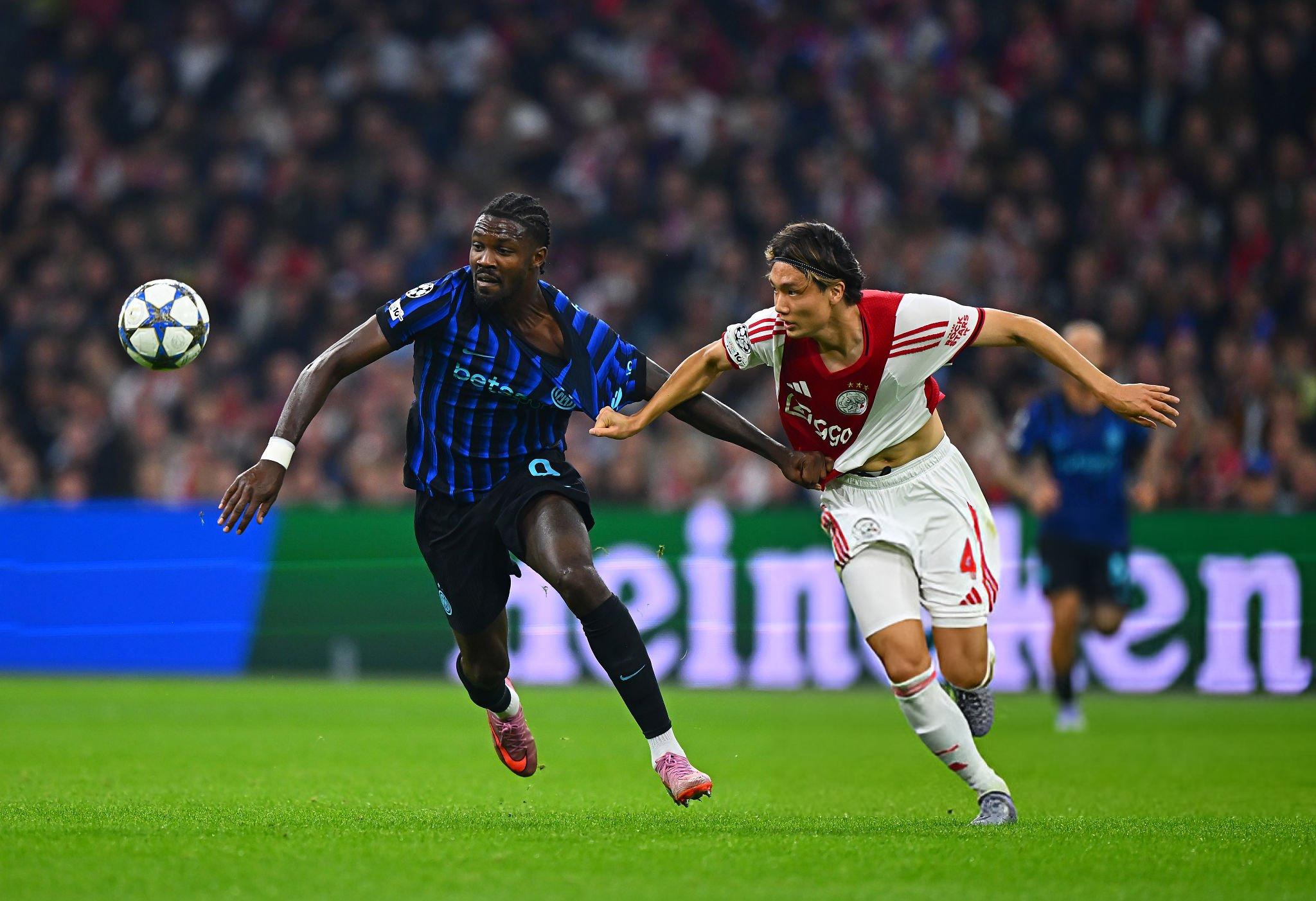
In Amsterdam Inter didn’t try to charm — they did what brings points. Two goals from corners — pure classic: a near-post delivery, a well-timed run, a deft nod — and the ball drifted into the far corner. Fifteen or twenty minutes later, a variation on the theme — and the opponent completely lost the thread of second balls.
Behind this simplicity lies toil. The Nerazzurri staff drill set-piece details like clockwork: picks, clearing the keeper’s zone, under-ball movement, and stepping out of offside at the instant of the cross. Ajax played bravely but lagged in ruthlessness on dead balls. And that’s the very resource that explodes in autumn: when attacking chemistry is still finding ratios, set pieces deliver almost error-free returns.
Next, the Milanese host Slavia — a match where denying the opponent a feel for the counter is vital. The Amsterdammers visit Marseille, where the stadium’s extremity can turn a game into an emotional thriller.
Slavia vs Bodø/Glimt: A Draw Won with Teeth
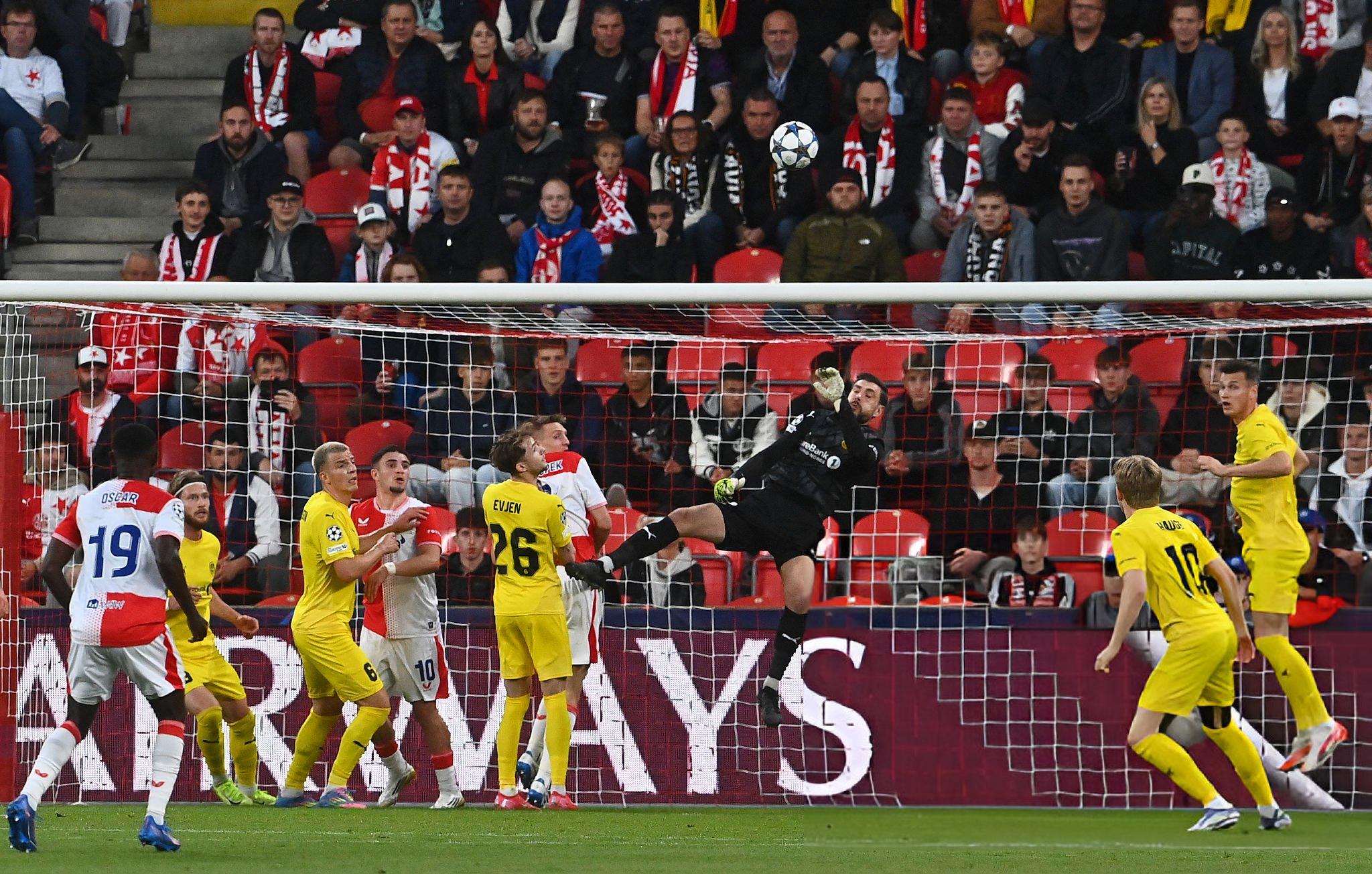
Prague did much right and still spilled two points at the end — 2–2. The home centre-back became man of the match both ways: first conceding a penalty in his own box (pardoned by a keeper’s save), then twice popping up where centre-backs feel cramped — at the back post. A brace is a rare beast for a stopper, but it appears when set pieces become routine.
Yet Bodø/Glimt are not a club that leaves with heads down. The 78th-minute lifeline restored suspense, and at 90 the Norwegians caught a perfect counter: diagonal into stride, lay-off for the shot — and a brush off the bar levelled it. The final chord was Nikita Haikin’s one-man save in stoppage time: acrobatic movement, reading a step ahead, angle sealed — the kind where a keeper doesn’t just preserve a point but stitches it with needle and thread.
For Bodø, it’s the club’s first point in a Champions League main stage — earned in a way that becomes a locker-room touchstone. Slavia are sporting-angry: when victory is almost in your hands, a draw feels like a loss, but scars like these harden into armour by spring.
Tactics, Character, and the Details That Decide
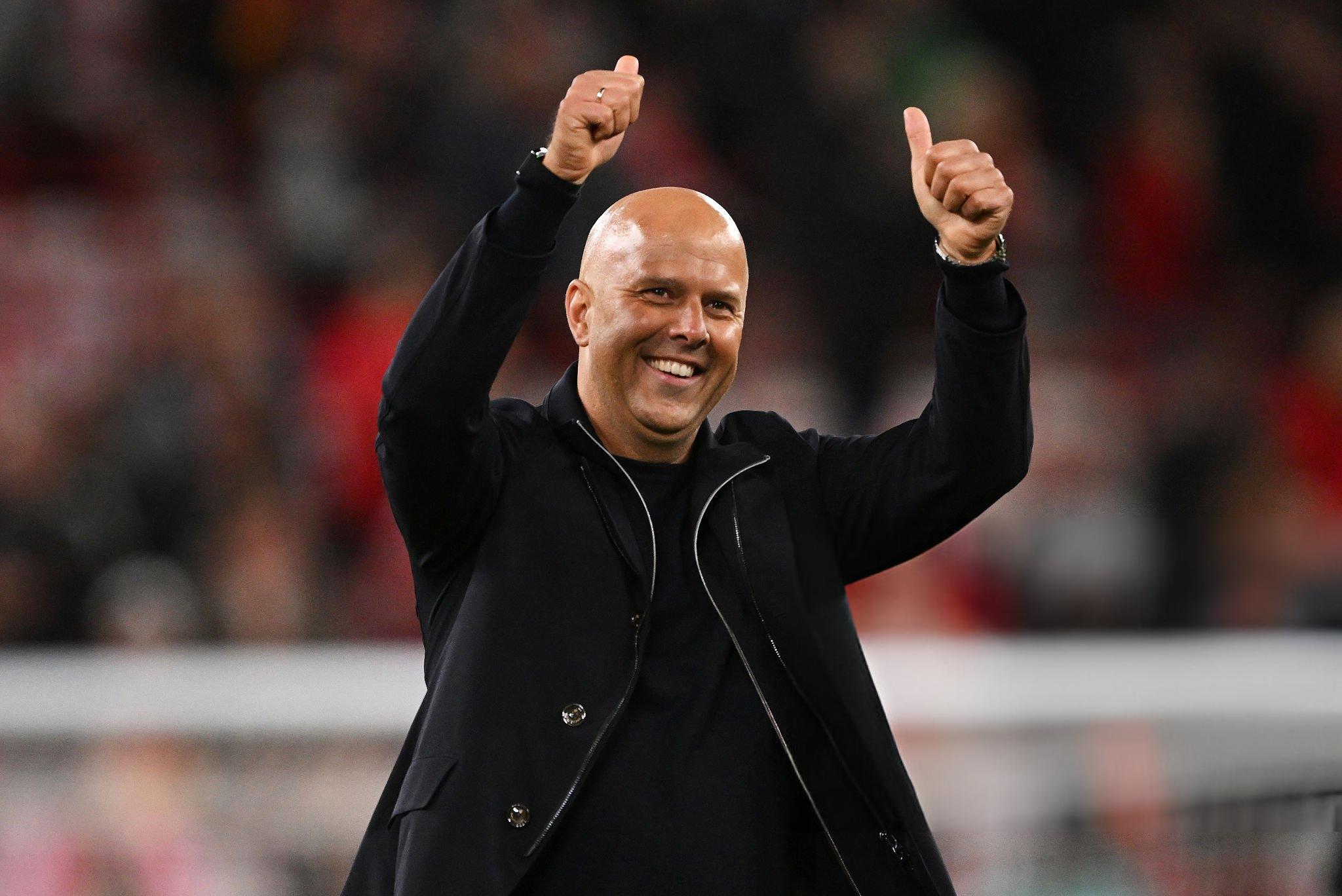
All these matches shared a denominator — micro-moments. Liverpool win the air at 90+, Bayern turn a single striker’s step into a penalty and a goal, PSG trap their opponent in the first-pass clamp, Pafos live without the ball through discipline, Inter stitch results from set pieces, and Bodø/Glimt hold faith to the last whistle. The Champions League is a competition where idea and character work as a pair: the first drafts the plan, the second won’t let you bin it when legs cramp and the second hand runs against you.
The managers’ emphases differed. Slot at Liverpool keeps cultivating the second wave and a wide attacking geometry through half-spaces; in Munich, Tuchel tightens the structure around Kane and assigns clear progression roles to midfield; Luis Enrique polishes the press–buildup synch; Pafos showcase adaptability; Inter invest hours in dead balls; Bodø instil stress resistance. Not just words — the kind of details that add points to a table.
Who Popped in Fantasy
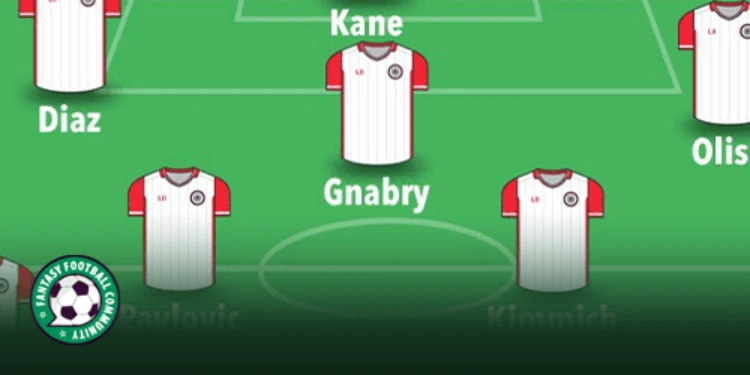
Beyond the obvious stars — Kane, Çalhanoğlu, and defenders banking clean sheets — one under-the-radar asset deserves mention: Olympiacos defender Panagiotis Retsos. In formats that reward clean sheets and ball recoveries, he’s close to an ideal budget profile. He played error-free, swept his box, and finished the night as that “secret ingredient” known to those who truly study roles and metrics.
If you’re just peeking into UCL Fantasy, the logic’s simple: build a 15-man squad blending steady point engines (cross-slinging full-backs, set-piece-threat centre-backs, playmakers fed by set pieces and penalties) with away-day projects carrying high upside. Budgets aren’t infinite, but smart, volume-based investments in overlooked defenders and mids often beat chasing big names.
What Comes Next
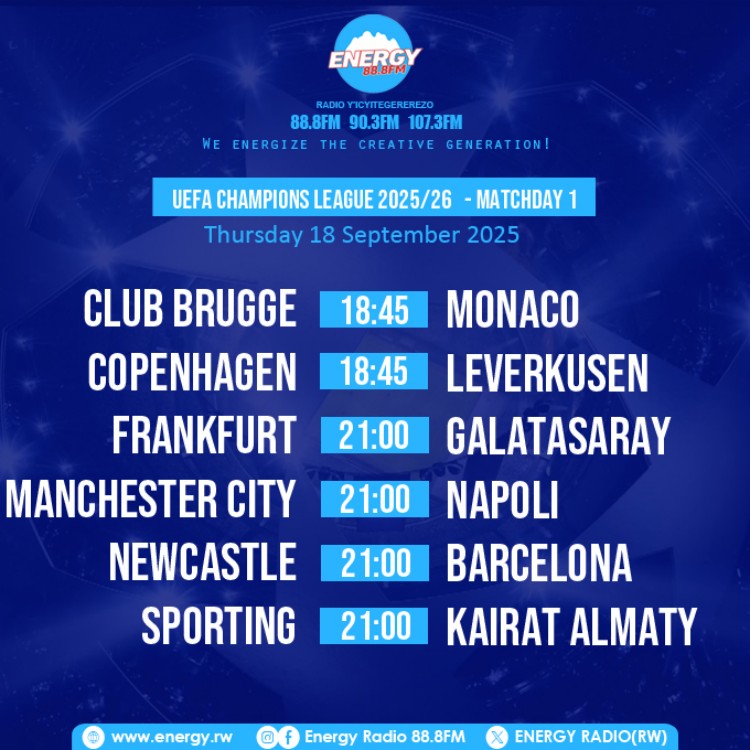
Matchday one is when masks don’t fully fall, yet it already shows who came into autumn with an idea and who with a hope. Liverpool proved they can live on a high pulse and score at the priciest second. Bayern showed precision trumps pomp. PSG showed a title disciplines more than it weighs. Pafos showed character can sit in a low block without losing dignity. Inter showed set pieces are not Plan B but the plan. Bodø/Glimt and Haikin showed a draw can sound like a win.
On Thursday those yet to speak join this special premiere week. Buckle a notch tighter: the Champions League autumn loves sharp bends. And the longer the seconds melt off the board, the clearer you hear who can win not only with feet and schemes but with nerves.

